- Home
- Barry Eisler
The Killer Collective
The Killer Collective Read online
PRAISE FOR BARRY EISLER
“A master of narrative-driven fiction enriched for the reader with unexpected twists and turns throughout.”
—Midwest Book Review
“Eisler is at the top of his game.”
—RT Book Reviews
“Eisler combines the insouciance of Ian Fleming, the realistic detail of Tom Clancy, the ennui of Graham Greene, and the prose power of John le Carré.”
—News-Press
“Furious and creative . . . Rain’s combination of quirks and proficiency is the stuff great characters are made of.”
—Entertainment Weekly
“No one is writing a better thriller series today than Barry Eisler. He has quickly jumped into my top ten best American mystery/thriller writers, along with Michael Connelly, Lee Child, Walter Mosley, and Harlan Coben . . . Rating: A.”
—Deadly Pleasures
“Written with a delightfully soft touch and a powerful blend of excitement, exotica, and what (ever since John le Carré) readers have known to call tradecraft.”
—The Economist
“Barry Eisler serves up steamy foreign locales, stunning action, and enough high-tech weaponry to make for an A-plus read.”
—New York Daily News
ALSO BY BARRY EISLER
A Clean Kill in Tokyo (previously published as Rain Fall)
A Lonely Resurrection (previously published as Hard Rain)
Winner Take All (previously published as Rain Storm)
Redemption Games (previously published as Killing Rain)
Extremis (previously published as The Last Assassin)
The Killer Ascendant (previously published as Requiem for an Assassin)
Fault Line
Inside Out
The Detachment
Graveyard of Memories
The God’s Eye View
Livia Lone
Zero Sum
The Night Trade
SHORT WORKS
“The Lost Coast”
“Paris Is a Bitch”
“The Khmer Kill”
“London Twist”
ESSAYS
“The Ass Is a Poor Receptacle for the Head: Why Democrats Suck at Communication, and How They Could Improve”
“Be the Monkey: A Conversation about the New World of Publishing” (with J. A. Konrath)
This is a work of fiction. Names, characters, organizations, places, events, and incidents are either products of the author’s imagination or are used fictitiously. Any resemblance to actual persons, living or dead, or actual events is purely coincidental.
Text copyright © 2019 by Barry Eisler
All rights reserved.
No part of this book may be reproduced, or stored in a retrieval system, or transmitted in any form or by any means, electronic, mechanical, photocopying, recording, or otherwise, without express written permission of the publisher.
Published by Thomas & Mercer, Seattle
www.apub.com
Amazon, the Amazon logo, and Thomas & Mercer are trademarks of Amazon.com, Inc., or its affiliates.
ISBN-13: 9781503904262 (hardcover)
ISBN-10: 1503904261 (hardcover)
ISBN-13: 9781503900950 (paperback)
ISBN-10: 1503900959 (paperback)
Cover design by Rex Bonomelli
First edition
For Alice and Andrew Vachss, whose work has inspired Livia and Rain—and their author.
Contents
start reading
prologue
PART 1
chapter one
chapter two
chapter three
chapter four
chapter five
chapter six
chapter seven
chapter eight
chapter nine
chapter ten
chapter eleven
chapter twelve
chapter thirteen
chapter fourteen
chapter fifteen
PART 2
chapter sixteen
chapter seventeen
chapter eighteen
chapter nineteen
chapter twenty
chapter twenty-one
chapter twenty-two
chapter twenty-three
chapter twenty-four
chapter twenty-five
chapter twenty-six
chapter twenty-seven
chapter twenty-eight
chapter twenty-nine
chapter thirty
chapter thirty-one
chapter thirty-two
chapter thirty-three
chapter thirty-four
PART 3
chapter thirty-five
chapter thirty-six
chapter thirty-seven
chapter thirty-eight
chapter thirty-nine
chapter forty
chapter forty-one
chapter forty-two
chapter forty-three
chapter forty-four
chapter forty-five
chapter forty-six
chapter forty-seven
chapter forty-eight
chapter forty-nine
chapter fifty
chapter fifty-one
chapter fifty-two
chapter fifty-three
chapter fifty-four
epilogue
Notes
Acknowledgments
Bibliography
About the Author
The months and days are the travelers of eternity.
—Bashō
prologue
Arrington smoked in the dark. Smoking meant so much, not just for its intrinsic pleasure, but because he knew what it did to him. Accepting the inherent risks involved, the price of the pleasure, elevated the activity from what might have been a mere indulgence to something more akin to a passion. After all, a man had to genuinely love—had to be committed to something—if he was willing to sacrifice himself for it.
Still, he didn’t do it all the time. He never wanted smoking to become rote or routine. It had to have impact. Mark the moment. Signify something special, even something extreme.
Tonight, it did all those things.
In some ways, what he had just learned defied reason, because how could something so awful also contain something so impossibly good? He had experienced a similar dynamic only once before: 9/11, when the news came at CIA about the Pentagon hit, and his first thought had been Kelly is there. Kelly, who only a month earlier had told him she wanted a divorce, and that she hoped they could do it amicably, with reasonable visitation rights so he could continue to be a father to their two small daughters, and with no more child support than what the law would require anyway.
And then she was gone. Extinguished. Suddenly, instead of a sad, impoverished divorcé, he was the widower of a martyred Defense Department employee, sanctified by her death, recipient of a six-figure life-insurance payout and a seven-figure September 11th Victim Compensation Fund settlement. Rich instead of poor. Celebrated instead of scorned.
That was the dirty little secret of 9/11, he thought. Not the conspiracy theories—the accusations about advance knowledge and controlled demolition and inside jobs. The real secret was that within the overall loss, there were also winners. After all, it was just a matter of statistics that half of marriages ended in divorce. And divorce was the chemotherapy of marriage, so expensive and toxic that only couples in extremis would attempt it as a cure. And if half of marriages were so cancerous that they justified treatment with the equivalent of chemotherapy, what did that say about the others? How many of the nondivorced had just learned to live with the illness because the cure seemed even worse than the disease?
&nbs
p; And all those unhappy unions, the bad and the worse, ended that morning. With the widows and widowers consecrated by the nation and showered with cash.
He had sensed today’s similarity immediately, but the full ramifications were so vast that he needed this moment in his town house living room, the lights off, the tendrils of tobacco smoke curling up past his fingers and the nicotine sharpening his focus, to try to fully understand.
He’d initially thought it would be just another scandal for the Secret Service. He didn’t care about that, beyond the value he thought he might extract politically. And then he had a hunch. A long shot, he’d thought. But it turned out he’d been right. Spectacularly so.
On the one hand, the whole thing confirmed his deepest fears. The fears the Agency shrinks had pronounced as “overblown”—as though a psychiatrist had any basis to opine on geopolitics. The fears he knew his complacent colleagues laughed about behind his back. The ones they had used to derail his career.
But on the other hand . . . hadn’t it been discovered by exactly the right person? Who else would have known how to leverage it to protect the country? Who else would have had the will, and the insight, that all the people who had laughed at him, and marginalized him, and in the end jettisoned him, had lacked?
Doing it right would require some . . . difficult decisions. But when the health of an entire forest was at stake, you couldn’t afford to focus too much on individual trees. In fact, to protect the forest, sometimes firebreaks needed to be constructed, and certain trees removed.
The first step would be the least pleasant. There were security risks to eliminate. Information integrity to protect. Too many people knew, and the longer he waited, the worse the problem would become. Within a matter of days, in fact, if not sooner, it might already be too late.
Obviously, none of it could be done from within the government. Because the problem was the government. It had already been penetrated, as he’d always suspected. The only surprise was that the disease was even more advanced and widespread than he had imagined. But Arrington knew exactly how to ensure that things were taken care of the way they needed to be. An outside force. A kind of . . . supplement to the immune system of the body politic.
He stubbed out his cigarette and closed his eyes, his heart pounding as hard as the first time he’d jumped from a plane. Which, of course, made sense. Because the stakes were that high, the margin for error that narrow. But he was going to do this. He would make sure to follow through. And then they would see. They would all see.
He picked up the phone and made the call that would set everything in motion.
PART 1
chapter
one
RAIN
I told them no. But I might as well have said yes. The killing business has its own gravitational pull, and if you get too close, or stay too long, you’ll never break free.
Or maybe it’s just more comfortable to blame circumstances, or fate, or some other outside factor for results in fact engineered by ourselves. After all, I could have taken down the secure site. I could have severed that link. I could have roamed the earth as Bashō did, unmoored, untethered, as remote and untouchable as one of the solitary clouds that inspired the seventeenth-century poet in his ceaseless wanderings.
But I didn’t.
They used Larison to make the initial contact. Larison, one of the most dangerous and volatile men I’d ever known. And, following the detachment we’d assembled to stop a series of false-flag attacks designed to instigate a coup in America, one of the few I trusted.
I was living in Kamakura, clear of Tokyo at last. Flush with an unexpected fortune in uncut diamonds from the job with Larison and the detachment, I’d bought property—a plot of hilltop land with a view of Sagami Bay, obtained via a painstaking series of cutouts and a lot of laundered money. Through further cutouts and at even greater expense, I’d hired a specialist in such matters, a man named Takishita, who found me a minka, a traditional Japanese farmhouse, standing derelict in Gifu province, the snow country sometimes known as the Japanese Alps. Takishita purchased the three-hundred-year-old structure on my behalf and had it disassembled and transported to my land in Kamakura, where he reassembled it, building in electricity, plumbing, large windows, and other modern conveniences, but in all material respects maintaining and, indeed, enhancing the design’s original beauty. He even created a modest but lovely karesansui—a traditional rock garden—outside the living-room window, which would take on different hues with each change of the seasons: autumn colors, winter snow, spring rains, summer sun.
The work took over three years, but I was in no hurry. I told myself a home was worth waiting for, and worth getting right. But when the project was finally done, I grew restless again, and I realized the minka’s purpose had been more to keep me busy than to provide a place to live. I would sit on a cushion by the irori, the open-air hearth in the middle of the living room, reading Bashō’s travel memoir, Oku no Hosomichi—The Narrow Road to the Interior—in Japanese and English, occasionally correcting what I felt was an inelegant line of translation, and I would feel like an artful forgery. Half-Japanese and half-American had always meant neither, and no amount of mastery—whether of judo, of language, of culture—would ever change that.
The distractions of the project behind me, I came to understand that building something of value was a way of sublimating, of suppressing my torment about having ruined things with Delilah—a bizarre act of self-sabotage, considering all the forces that had previously tried and failed to set us against each other. Every day, I wanted to contact her. Every day, I knew I should. And every day, I didn’t. My minka was beautiful, but it came to feel more a fortress than a home. A fortress of solitude.
So Larison’s contact, when it came, felt like a relief. I should have taken it instead as a warning.
I used an encrypted satellite phone to call the number he’d posted on the secure site. That I even maintained the untraceable unit was, of course, at odds with the notion of my “retirement.” But we rarely see what we prefer to overlook.
He picked up on the first buzz, his gravelly whisper instantly recognizable. “You just won me a bet with myself.”
I imagined it was just a crack, but I didn’t like it. In my business, being predictable is one step from being dead.
Of course, I wasn’t in the business. I was retired.
“What do you mean?”
“I bet that you wouldn’t have taken down the site. And that you’d still be checking it.”
“Should I be wishing you’d lost?”
“I doubt it. You kept it intact because it’s better to know if someone’s looking than to make him find you another way. I was betting on you being smart.”
I liked his explanation better than what I was beginning to suspect myself—that maybe I just wanted to be found.
“How are you?” I said, surprised and a little discomfited at how pleased I was to be talking to him. “Getting any sleep?” Once, in Vienna, he’d told me he was plagued by bad dreams. The things he’d done in SpecOps to cause those dreams, he wouldn’t speak of at all.
“Sometimes,” he said. “It’s never going to be good. But . . . sometimes it’s better. You?”
“I’m retired.”
He laughed.
I felt a touch of irritation. “Why’s that funny?”
“Hey, it’s not me you have to convince. It seems Hort has someone in need of your services.”
The “services” I’d been known for were jobs demanding the appearance of natural causes. When a bullet, a blade, or a bomb would do, you could hire anyone. But when it absolutely had to look like something other than a contract hit, I’d pretty much had the market to myself.
“Horton?” I said. “I half expected you would have killed him by now.”
Once upon a time, Colonel Scott “Hort” Horton had been a legend in SpecOps. He was the one who’d tapped me to lead the detachment through which I’d met Larison. But his endles
s manipulations and deceit had made him a lot of enemies—Larison foremost among them.
“I might still. But I like imagining him smoking an after-dinner cigar on the porch of his little cabin outside Lynchburg, wondering every time if tonight’s the night I ghost up out of the woods and punch his ticket.”
“So he reached out to you, what, as a way of keeping his enemies close?”
“One possibility, sure.”
“What are the others? He’s retired, isn’t he?”
Larison laughed. “Yeah, same as you.”
I let it go. Whether he was right about me or not, his meaning was clear enough. Horton might have been out. But he was looking for a way back in.
“All right,” I said. “If Horton’s the broker, who’s the client?”
“I asked the same question. Hort wouldn’t tell me. For your ears only. But if you want to share, I’m a good listener.”
I said nothing. Playing it reluctant was an old habit. Maybe I should have been alarmed at how easily I slipped back into it. But the main thing I noticed was that it felt as comfortable as a second skin.
Or even a first one.
“I didn’t tell him I knew how to contact you,” Larison said after a moment. “Even though I was pretty sure I did. Anyway, I don’t know where you are. I couldn’t tell anyone if I wanted to. Or if they tried to make me. You’re safe. Still retired, if that’s what you want.”
Again I said nothing, and after another pause, he went on. “But you know how it works. You don’t call Hort, they’ll keep looking for another way to get to you. And maybe the next way they find won’t be as friendly as I am.”
chapter
two
LIVIA
It looks like you were right about Malaysia,” Trahan called out by way of greeting. “I think we got him.”
Livia felt her heart kick with an adrenaline hit at the news. She locked the door behind her, and walked down the corridor into the loft the Bureau had rented. It was gray outside, but the place was nothing but tall windows on three sides with some brick in between, and even with the lights off, it was well illuminated.
Trahan was sitting at the end of a wooden table in the center of the room, staring at one of the monitors in front of him. Livia stood at the long end of the table and watched him silently for a moment, then said, “Kool Kat?”

 All the Devils
All the Devils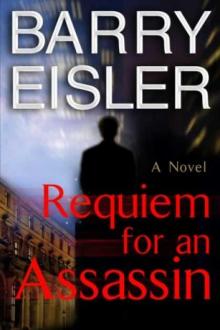 Requiem for an Assassin
Requiem for an Assassin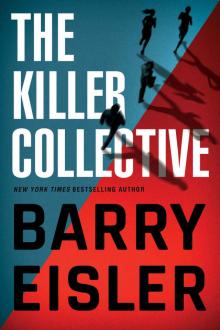 The Killer Collective
The Killer Collective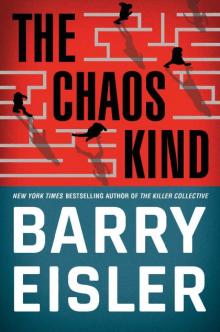 The Chaos Kind
The Chaos Kind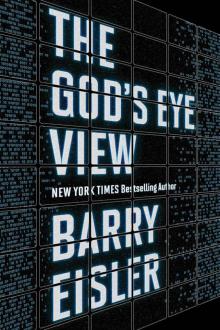 The God's Eye View
The God's Eye View Paris is a Bitch
Paris is a Bitch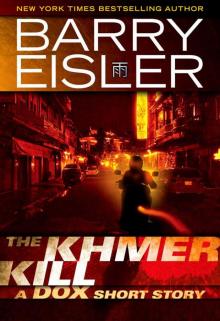 The Khmer Kill: A Dox Short Story (Kindle Single)
The Khmer Kill: A Dox Short Story (Kindle Single)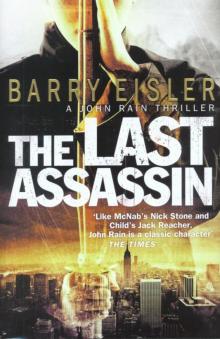 The Last Assassin
The Last Assassin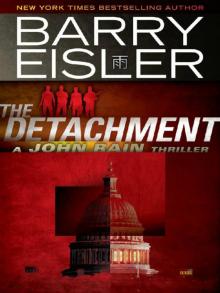 The Detachment
The Detachment The Night Trade (A Livia Lone Novel Book 2)
The Night Trade (A Livia Lone Novel Book 2)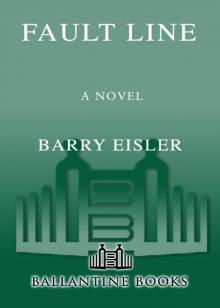 Fault Line
Fault Line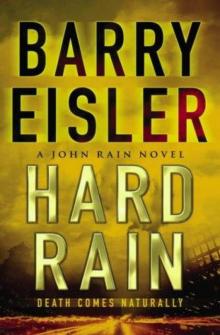 Hard Rain
Hard Rain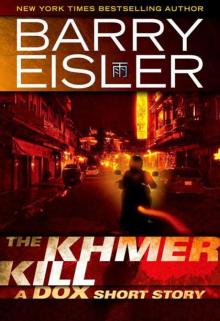 The Khmer Kill_A Dox Short Story
The Khmer Kill_A Dox Short Story London Twist: A Delilah Novella
London Twist: A Delilah Novella The Lost Coast
The Lost Coast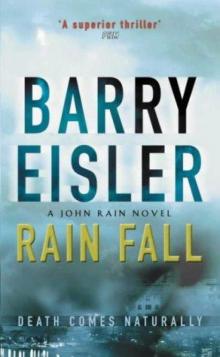 Rain Fall
Rain Fall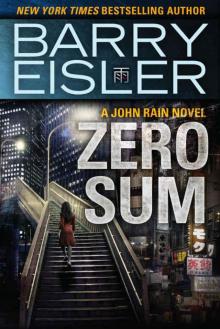 Zero Sum
Zero Sum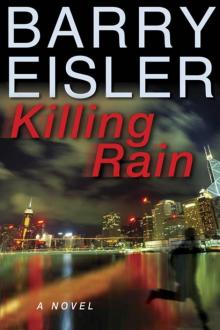 Killing Rain
Killing Rain John Rain 08: Graveyard of Memories
John Rain 08: Graveyard of Memories A Clean Kill in Tokyo (previously published as Rain Fall)
A Clean Kill in Tokyo (previously published as Rain Fall) Inside Out: A novel
Inside Out: A novel John Rain 07 - The Detachment
John Rain 07 - The Detachment Graveyard of Memories
Graveyard of Memories The Lost Coast -- A Larison Short Story
The Lost Coast -- A Larison Short Story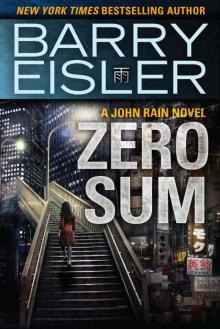 Zero Sum (A John Rain Novel)
Zero Sum (A John Rain Novel)